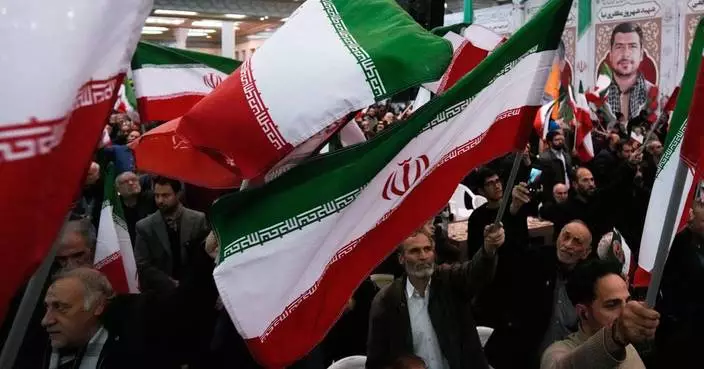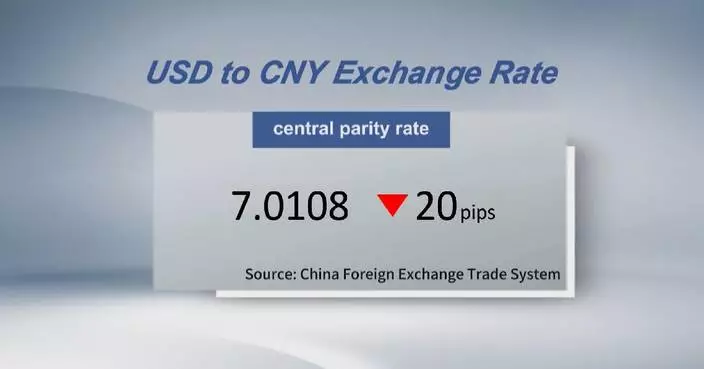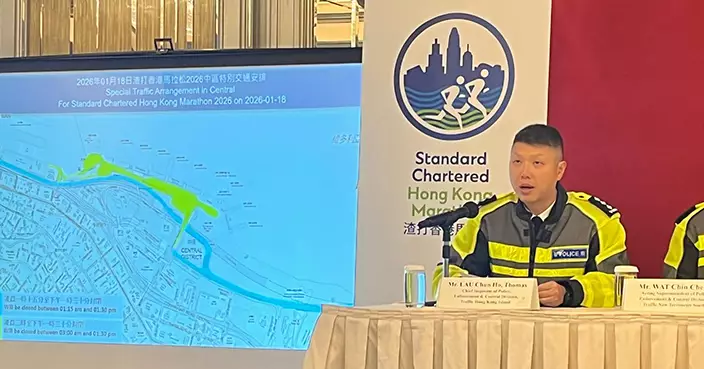Feature · News

HK outlines new strategy to be actively integrated into national development: official

Greater Bay Area Exhibition Launches to Highlight Opportunities for Hong Kong Youth at Local Universities

Iranian president vows to engage in dialogue with protesters, but warns against rioters

US strike hits Venezuelan port, wrecking medical supplies, heritage building

Film IP fuels expansion of consumer market

Protests erupt across US over ICE shootings

BP China Insight : Former U.S. Ambassador to NATO: Trump Obsessed with Oil; China Bets on Electricity
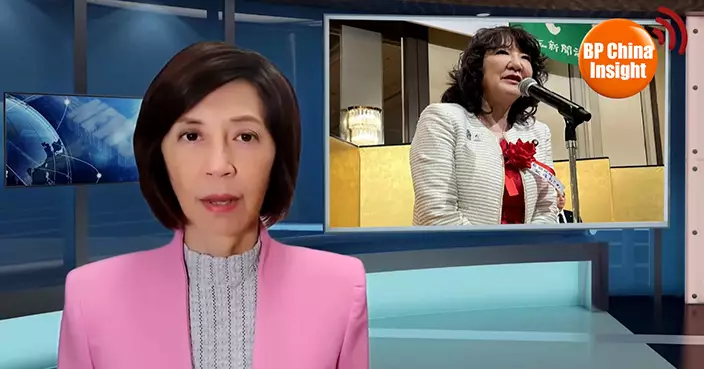
BP China Insight : Japan Seeks "Parental" U.S. Help After Repeated Chinese Retaliation

Three Redhill Peninsula homeowners fined $275,000 for unauthorized building works, court confirms ongoing enforcement actions

Iran swears to counterattack if attacked

Venezuelans in the US are torn between joy and worry after ousting of Maduro

Photos of Syrians fleeing violence in Aleppo

Barbie® Introduces the First Autistic Barbie Doll, Championing Representation for Children through Play

Gold, silver prices surge to record highs on Monday

European leaders condemn US "threatening rhetoric" over Greenland

Hainan sees booming tourism market following special customs operations launch

BP China Insight : Former U.S. Ambassador to NATO: Trump Obsessed with Oil; China Bets on Electricity

BP China Insight : Japan Seeks "Parental" U.S. Help After Repeated Chinese Retaliation

Three Redhill Peninsula homeowners fined $275,000 for unauthorized building works, court confirms ongoing enforcement actions
Iran swears to counterattack if attacked
HK outlines new strategy to be actively integrated into national development: official

Greater Bay Area Exhibition Launches to Highlight Opportunities for Hong Kong Youth at Local Universities
Iranian president vows to engage in dialogue with protesters, but warns against rioters
US strike hits Venezuelan port, wrecking medical supplies, heritage building
Film IP fuels expansion of consumer market
Protests erupt across US over ICE shootings

Venezuelans in the US are torn between joy and worry after ousting of Maduro

Photos of Syrians fleeing violence in Aleppo

Barbie® Introduces the First Autistic Barbie Doll, Championing Representation for Children through Play
Gold, silver prices surge to record highs on Monday
European leaders condemn US "threatening rhetoric" over Greenland

Hainan sees booming tourism market following special customs operations launch
Feature·Bloggers

【Bastille Commentary】Chicken-hearted Conservatives: Sanctioning Hong Kong Judges While Trump Runs Wild

【What Say You?】Trump’s “Maduro Grab” Gets a Glossy Spin by the Usual Suspects

【What Say You?】Trump's Judicial Theater: Maduro's Fate Already Sealed

【Deep Throat】Trump's Venezuelan Oil Grab: Big Oil Not Playing Along?

The Most Laughable Lie of the New Year: Jimmy Lai's "Grave Illness" Falls Apart Under Five Hard Facts

【What Say You?】Black Riots “comrades” Thought Ukraine Was Another “Resistance”—Then the Contract Hit

Michigan's lieutenant governor drops gubernatorial bid and launches campaign for secretary of state
- US stocks drift lower as Wall Street shows some concern about the White House's and Fed's feud
- The Latest: DOJ subpoenas central bank and threatens criminal indictment, Fed Chair Powell says
- Thousands of nurses go on strike at several major New York City hospitals
- The Latest: Trump says Iran proposed negotiations as hundreds killed in protests
- Factor Makes Retail Debut with Launch in Target Stores across the Midwest
- Trump says Iran wants to negotiate as the death toll in protests rises to at least 572
- Vizient Clinical Data Base recognized as one of Modern Healthcare’s Best in Business
- Cuba's president says no current talks with the US after Trump threatens it
- GitLab Appoints Siva Padisetty as Chief Technology Officer

Death toll in central Philippine landfill collapse rises to eight
- China, EU agree on price undertaking guidance for Chinese electric vehicle exporters: commerce ministry
- Xi urges advancing Party self-governance with higher standards, more concrete measures
- Former Canadian PM shares family mission to promote Canada-China friendship
- Tech companies lead Hong Kong shares rally on Monday: analyst
- Canadian sports brands pursue an upward slope of market potential in China
- Chinese stock markets continue to rally as trading turnover hits record high: analyst
- Iranian foreign minister says situation "fully under control," accuses Israeli intelligence of stoking unrest
- Xinjiang ski resorts enter peak season
- Party's code of conduct inspires profound transformations in China

Relativity Launches aiR for Case Strategy, Bringing Generative AI to Case Intelligence
- Hang Lung Enters the Next Phase in Its Sustainability Journey with Ambitious New Targets
- DAR GLOBAL AND THE TRUMP ORGANISATION EXPAND SAUDI PORTFOLIO WITH USD 1BN TRUMP PLAZA JEDDAH
- Plume Acquires Sweepr to Deliver AI-Orchestrated Customer Experience Platform to ISPs Globally
- L'OCCITANE Group celebrates 50 years of L'Occitane en Provence
- Xi'an Kicks Off 2026 Chang'an Lantern Festival with Epic Light Spectacles to Spring
- BBSB International Limited announces its subscription results; Recorded approximately 10,745 times of over-subscription for its Public Offer
- XTransfer Debuts at the CES in Vegas
- Racing across frozen rivers, uniting youth worldwide: a glimpse into HIT's inaugural ice dragon boat race with Oxford and Cambridge
- LambdaTest Rebrands to TestMu AI, the World's First Agentic Quality Engineering Platform for Fully Autonomous Testing

Malaysia and Indonesia become the first countries to block Musk’s Grok over sexualized AI images
- Google teams up with Walmart and other retailers to enable shopping within Gemini AI chatbot
- VR headsets are 'hope machines' inside California prisons, offering escape and practical experience
- Doctors say changes to US vaccine recommendations are confusing parents and could harm kids
- Strength training is crucial after menopause. How to make the most of your workouts
- Meta lines up massive supply of nuclear power to energize AI data centers
- From climbing vacuums to cyber pets: Some highlights of CES 2026
- Musk's Grok chatbot restricts image generation after global backlash to sexualized deepfakes
- Some flu measures decline, but it's not clear this severe season has peaked
- NASA, in a rare move, cuts space station mission short after an astronaut's medical issue

Inside the Golden Globes: The reunions and moments the telecast didn't show
- See top photos of stars on the 2026 Golden Globe Awards red carpet
- Golden Globe highlights: Brazil on a streak, Amy Poehler's pod wins and Seth Rogen comes full-circle
- Celebrities wear pins protesting ICE at the Golden Globes
- The Golden Globes are tonight. Here's what to look for and how to watch and stream the show
- Celebrities embrace black and old Hollywood glamour for Golden Globes red carpet
- Nikki Glaser takes swings at CBS and Leo, goes gentle on Julia in Golden Globes monologue
- The Latest: Golden Globes kicks off Hollywood's 2026 awards season
- Complete list of 2026 Golden Globe Award winners
- Erich von Däniken, Swiss writer who spawned alien archaeology, dies at 90

Variawa's incredible comeback snatches stage in Dakar Rally and Benavides rides to another win
- Rolland Courbis, a passionate figure in French soccer, dies at 72
- Muhammad Ali will be honored with a commemorative US postage stamp
- Organizers condemn 'unacceptable behavior of players and officials' after fighting at Africa Cup
- Crans-Montana set to host Olympic ski races in Switzerland bid for 2038 Winter Games
- Matthew Stafford ends record-tying longest wait for first-team AP NFL All-Pro honor
- Defending Super Bowl champion Eagles flop against 49ers, could lead to staff changes
- Loïs Boisson withdraws from Australian Open with injury
- Dakar Rally moves through sweeping desert landscapes, in photos
- Canadian ice master makes Olympic history with the Games' 1st indoor temporary speedskating rink
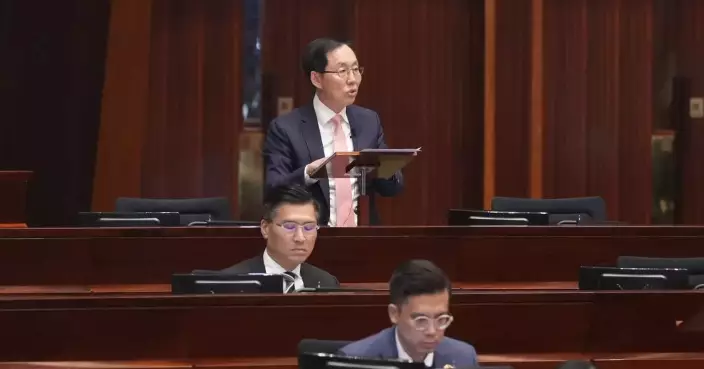
Chan Kin-por Suspends Public Roles to Focus on Wang Fuk Court Fire Investigation
- Hong Kong court hears arguments on sentencing of former publisher Jimmy Lai; no decision yet
- Civil Aviation Department Completes Successful Aeronautical Search and Rescue Exercise Near Lantau Island
- HKMA Warns Public About Scams Involving Fraudulent Bank Websites and Phishing Emails
- No New Chikungunya Fever Cases Reported in Hong Kong; Authorities Enhance Mosquito Control Measures
- Hong Kong Launches Special Care Dental Services Coordinating Committee to Enhance Oral Health for Targeted Groups
- Centre for Health Protection Reports Two Legionnaires' Disease Cases, Urges Public to Maintain Water Systems
- FEHD Launches Anti-Rodent Partner Awards 2026, Inviting Nominations Until February 11
- Hong Kong Customs Seizes 11.5 kg of Cannabis in Two Airport Drug Trafficking Cases
- Hong Kong Marathon 2026: Temporary Road Closures and Transport Adjustments Announced for January 18
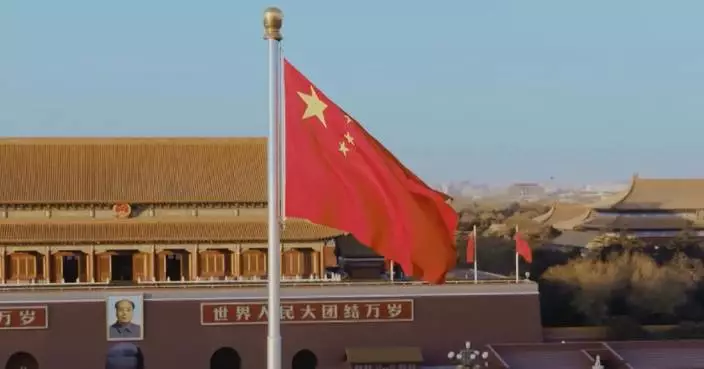
Xi emphasizes commitment to multilateralism, cooperation in latest diplomatic engagements
- Danish expert urges global response to U.S. threat over Greenland
- US military action against Venezuela draws widespread condemnation
- Mainland slams Taiwan regional authorities for challenging one-China principle
- Northwest China's Xi'an plays pivotal role in boosting ancient exchanges with outside world
- Hong Kong stocks close higher
- U.S. Fed Chair Powell under investigation
- China to deliver world-leading LNG carrier Tianshan with green propulsion
- China issues landmark regulation on allocation of government investment funds
- Chicago's South Side suffers lingering impacts of racist 'redlining' practices
Category · News

Michigan's lieutenant governor drops gubernatorial bid and launches campaign for secretary of state

Relativity Launches aiR for Case Strategy, Bringing Generative AI to Case Intelligence

Variawa's incredible comeback snatches stage in Dakar Rally and Benavides rides to another win
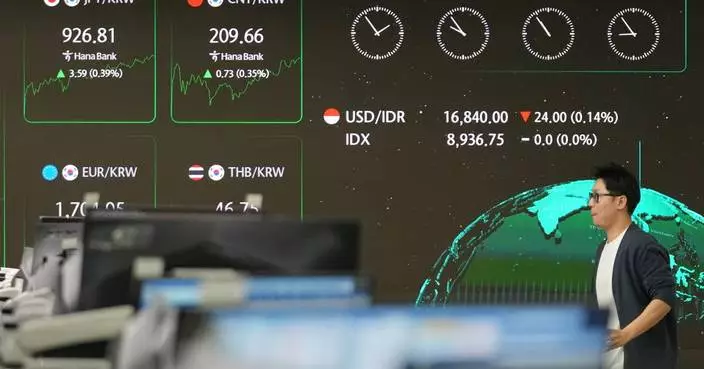
US stocks drift lower as Wall Street shows some concern about the White House's and Fed's feud

The Latest: DOJ subpoenas central bank and threatens criminal indictment, Fed Chair Powell says

Inside the Golden Globes: The reunions and moments the telecast didn't show

Thousands of nurses go on strike at several major New York City hospitals

The Latest: Trump says Iran proposed negotiations as hundreds killed in protests

Factor Makes Retail Debut with Launch in Target Stores across the Midwest

Trump says Iran wants to negotiate as the death toll in protests rises to at least 572

Vizient Clinical Data Base recognized as one of Modern Healthcare’s Best in Business

Cuba's president says no current talks with the US after Trump threatens it
Death toll in central Philippine landfill collapse rises to eight

GitLab Appoints Siva Padisetty as Chief Technology Officer

1Password Appoints Nancy Wang as Chief Technology Officer to Lead AI Strategy

The Knot Worldwide Appoints Michael Pickrum as Chief Financial Officer

Tractor Supply Reaches Major Milestone With Grand Opening of 2,400th Store

Koch Companies Acquires Store Opening Solutions (SOS)

Kalahari Resorts & Conventions to Open Bookings January 12, 2026 for New Virginia Resort in Spotsylvania

Hang Lung Enters the Next Phase in Its Sustainability Journey with Ambitious New Targets

Pope Leo XIV meets with Venezuelan opposition leader María Corina Machado in a surprise audience

Malaysia and Indonesia become the first countries to block Musk’s Grok over sexualized AI images

New Clinical Study Publication Validates Respiratory Outcomes for the Onera Home-polysomnography System

Renata Medical Appoints Renowned Pediatric Interventional Cardiologist Dr. Evan Zahn as Chief Medical Officer

Former Polish justice minister who faces prosecution at home says he's received asylum in Hungary

BioMed Realty and TransMedics Announce 498,000-Square-Foot Lease at Assembly Innovation Park

DAR GLOBAL AND THE TRUMP ORGANISATION EXPAND SAUDI PORTFOLIO WITH USD 1BN TRUMP PLAZA JEDDAH

Largo Announces Copper Mineralization Studies Across its Maracás Menchen Vanadium Deposits; Extends US$6 Million Secured Loan

Sleep Number Introduces ComfortMode™ Mattress: Premium Comfort at an Affordable Price

Abridge and Availity Collaborate to Redefine Payer-Provider Synergy at the Point of Conversation

Curi Bio Launches Asia-Pacific Hub, Delivering Greater Support to its Growing APAC Business

L'OCCITANE Group celebrates 50 years of L'Occitane en Provence

Plume Acquires Sweepr to Deliver AI-Orchestrated Customer Experience Platform to ISPs Globally

Xi'an Kicks Off 2026 Chang'an Lantern Festival with Epic Light Spectacles to Spring

Rolland Courbis, a passionate figure in French soccer, dies at 72

BBSB International Limited announces its subscription results; Recorded approximately 10,745 times of over-subscription for its Public Offer

XTransfer Debuts at the CES in Vegas
China, EU agree on price undertaking guidance for Chinese electric vehicle exporters: commerce ministry
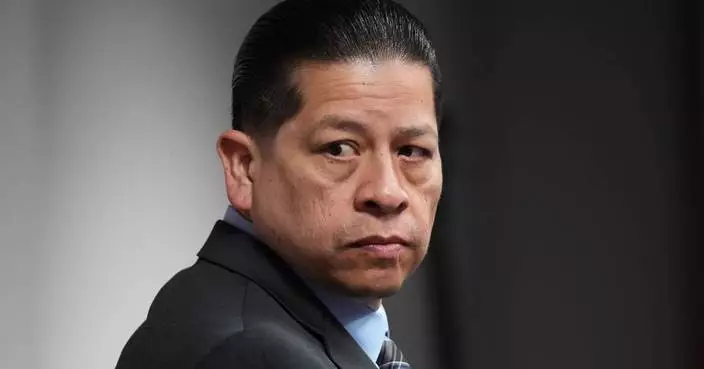
What to know about the Uvalde school shooting trial as it heads into its second week

Muhammad Ali will be honored with a commemorative US postage stamp

Mitsubishi Corporation Joins Starlab as Major Space Station Customer

Kobo Delivers Significant Progress at its Kossou Gold Project in 2025, Establishes a Scalable West African Gold Platform for 2026 and Hosted the 2nd Annual Kobo Cup

Chan Kin-por Suspends Public Roles to Focus on Wang Fuk Court Fire Investigation

Vibrant Therapeutics Raises $61M and Appoints Han Lee, Ph.D. as Co-CEO

Racing across frozen rivers, uniting youth worldwide: a glimpse into HIT's inaugural ice dragon boat race with Oxford and Cambridge
Xi urges advancing Party self-governance with higher standards, more concrete measures

Organizers condemn 'unacceptable behavior of players and officials' after fighting at Africa Cup

Henry Schein Names Frederick M. Lowery as Chief Executive Officer

Everseen Unveils Everact: The First Agentic AI Platform for Conversational Retail Intelligence

Healthpeak Properties Announces $925 Million of Transaction Activity

LambdaTest Rebrands to TestMu AI, the World's First Agentic Quality Engineering Platform for Fully Autonomous Testing

ShareBuilder 401k Empowers the Self-Employed With Free Solo 401(k) Setup to Start the New Year

Hong Kong court hears arguments on sentencing of former publisher Jimmy Lai; no decision yet

Crans-Montana set to host Olympic ski races in Switzerland bid for 2038 Winter Games

XCMG gets off to a flying start in 2026 with multiple deliveries to international markets

Circle K Helps Customers Recover from Holiday Spending with 40 Cents off Per Gallon on Jan. 15

MedaSystems Reports Breakthrough Year of Global Growth, Clinical Trust, and Platform Expansion

e.l.f. Cosmetics and Liquid Death Drop Limited-Edition “Lip Embalms”

PlusAI Launches Southern Europe’s First Autonomous Trucking Program with IVECO

Matthew Stafford ends record-tying longest wait for first-team AP NFL All-Pro honor

Defending Super Bowl champion Eagles flop against 49ers, could lead to staff changes

LEGO® Education Announces Hands-on Computer Science & AI Learning Solution

Civil Aviation Department Completes Successful Aeronautical Search and Rescue Exercise Near Lantau Island

Apex AI brings global automation capability to Australia's scaling startups

Loïs Boisson withdraws from Australian Open with injury

Hearings on whether Myanmar committed genocide against the Rohingya opens at top UN court

HKMA Warns Public About Scams Involving Fraudulent Bank Websites and Phishing Emails

Dakar Rally moves through sweeping desert landscapes, in photos

Gem Sri Lanka 2026 Concludes Successfully: Platinum Sponsor GUILD Propels Industry Growth

XTransfer Debuts at the CES in Vegas
Former Canadian PM shares family mission to promote Canada-China friendship

Banyan Group Unveils New Residential Brand: Bellaguna
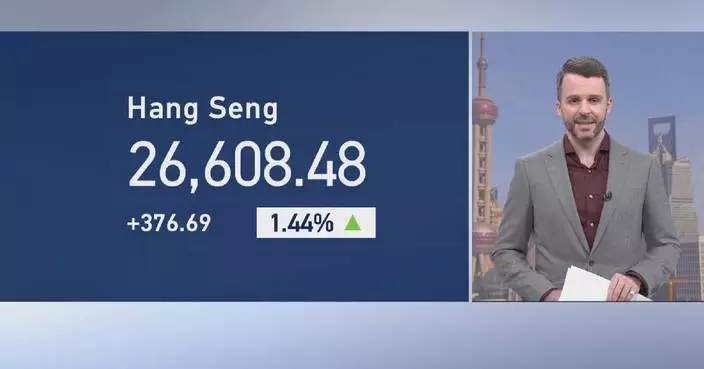
Tech companies lead Hong Kong shares rally on Monday: analyst
Canadian sports brands pursue an upward slope of market potential in China
Chinese stock markets continue to rally as trading turnover hits record high: analyst
Iranian foreign minister says situation "fully under control," accuses Israeli intelligence of stoking unrest
Xinjiang ski resorts enter peak season

DAR AL ARKAN, IN COLLABORATION WITH DAR GLOBAL AND THE TRUMP ORGANIZATION, TO DEVELOP TRUMP INTERNATIONAL GOLF CLUB, WADI SAFAR - THE FIRST OF TWO LANDMARK PROJECTS IN RIYADH
Party's code of conduct inspires profound transformations in China

Dr.stretch Malaysia partners with NHA athlete Saif Nordin, brings elite mobility and performance to all Malaysians
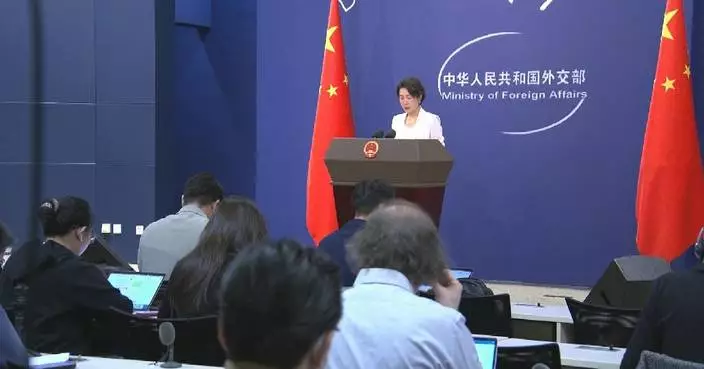
No report of Chinese casualties in Iran so far: spokeswoman

Photos of 20-year-olds gathering in kimonos for Coming of Age Day ceremony in Japan

No New Chikungunya Fever Cases Reported in Hong Kong; Authorities Enhance Mosquito Control Measures
Xi emphasizes commitment to multilateralism, cooperation in latest diplomatic engagements


